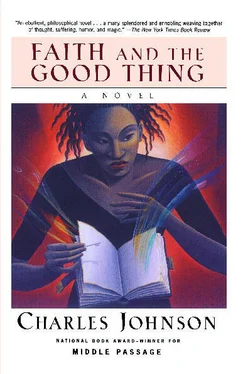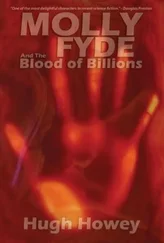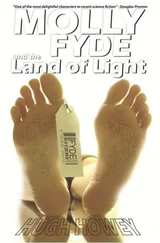During the riotous days of his wanderlust, Todd Cross had been a gambler and could take your money in a game of five-card stud faster than any man alive. This he did, and the others involved in that Saturday night game in the back room of the Bucket-o-Blood saloon reached for their pistols. Todd snatched the satchel of money off the wine-stained table, threw himself through the window, fell two flights, and landed on the sheriff’s horse. Unfortunately, the sheriff was on it; that is, until Todd came hurtling down. The sheriff called a posse, the posse called the vigilantes, and they called the National Guard. Todd rode like the wind. But his horse petered out near the mountains, whinnied, “To hell with this,” and Todd had to make it on foot, armed with but a single-shot derringer, his satchel, and a whole lot of heart. The hounds were at his heels the whole night long, vigilante bullets swarmed around his head like bees gone crazy. Todd kept stepping. He hid in a mountain cave. But they found him, children. His back pressed to the moist wall of the cave, he could hear the dogs outside, fighting one another to see who’d be first to chew the marrow from his bones. “Give up!” the vigilantes hooted. In a corner, just inches from his feet, Todd saw two gleaming eyes; he heard a grizzly growling. Above him was the bodacious beating of bat wings. Vampires. Todd fell to his knees, ankle-deep in a small stream that rippled through the cave. He prayed — he had to shout it, children, because those dogs and vigilantes and bats were loud! Todd fell on his side; he screamed when the bloodhounds came barreling in. Water touched his lips. He thrust out his tongue:
“Ahhh. ”
But Faith felt in no way reassured. This wasn’t home, this wasn’t the South. Lost, directionless, any step she took would probably be wrong. Fatal. Faith leaned back against the bridge, trembling. She felt something soft along her shoulders. Before she could turn a gloved hand with its cloth fingers worn away clamped over her mouth. Something snatched at her right arm, twisted it behind her back.
“Just be quiet,” an excited voice said into her ear. “I don’t want to hurt you. Just don’t scream.”
She should have bitten the salty-tasting fingers pressed against her teeth; she should have kicked back her heels toward his groin and screamed with all her strength. But the touch of his hand was electrifying — hard and rough. She was helpless, her eyes saw white, her knees dissolved.
“Just be silent,” the voice stammered. “I’m a poor man — a desperate man, or I wouldn’t be doing anything like this.” There was silence and horribly heavy breathing. The air carried the rush of traffic faraway. Then a rasping intake of air. “I was a professor at Princeton. Once — I was a scholar, you see? I’ve published, lectured, created courses unheard of before my coming. But my ideas cost me my job. No, you wouldn’t understand, of course, but what I wanted to teach was the truth not, not—” His voice trailed off in a whisper, then came back booming in her ear. “Pray that the poets were right — that someday, some day the rich will find themselves governed in a hell ruled by philosopher-kings. But until then, child. give me your bag!”
Herewith, the hands released her. Faith pivoted, nearly falling, and glimpsed a squat, red-eyed, wolfish man in a mauve-colored coat. He wrenched the bag from her hand, shoved her aside, and sprinted across the bridge, shouting, “Forgive me! The victim and victor are One!”
As he ran, rifling Faith’s laundry bag, the thief collided at the end of the bridge with a silhouetted figure. He recoiled and shouted, “Mercy!” She saw him fling the bag aside and, through a series of jerky feints, elude the figure. Who picked up her bag. He hurried up the bridge, its lights bringing into clarity his dark waistcoat, then a hat pulled over his eyes. He was sweating profusely. From his face there drifted steam.
“Your bag’s empty,” he said breathlessly. “There wasn’t money in it, was there?”
Faith collapsed against the bridge. She held her head. “Just a few dollars — call someone—” She looked up, startled by his silence. He was shaking his head. What struck her immediately was his glasses — silver wire-rims hooked over winglike ears and holding lenses so thick his eyes seemed to float behind them like dark blowfish. Between those lenses was a thin bridge dropping to a bulbous nose and wide nostrils. And below that — tight lips surrounded by a scraggly goatee. All over he had the hue of coffee colored with skim milk: a hesitant brown. His feet were tiny and delicate, poorly supporting his wide girth and watery, womanly hips. This was he who saved her. Also he who said, “I hate to sound like a pessimist, but there’s no point in calling the police. Your money’s gone. I can take you home if you like.” Again, he licked his thin lips. Faith found him frightening, not because he was intimidating or because he seemed aggressive, but because he appeared ready to fly apart — nervous, put together with phlegm, gristle, and paste. She looked away, shuddering, her teeth rattling as the wind stole like a lecher up her legs.
“Where can I take you?” he asked. He glanced over his shoulder (which he did often), then produced from his coat pocket a handkerchief so neatly folded it seemed the product of obsession. “Where are you staying?” He cocked his head. “What’s your name?” Finally, he raised his voice. “Can you speak?”
“My name is Faith Cross and I don’t have a place to stay.” The region around her mouth felt brittle, her chattering teeth clipped at the edge of her tongue. “I don’t have a place to go—”
He started to speak, but held his breath, picking his teeth with his tongue. At the bridge’s end two officers appeared with clubs swinging like pendulums at their sides. He grabbed Faith’s arm and tugged at her slightly. “There’s a nice spot just around the corner,” he said. His voice was as thin as his lips. “You look like you could use a drink.”
Tugging Faith along the bridge, he directed her into the close foyer of an all-night tavern, then through a glass door to a semidark room. He found a booth at the rear, and sat poker-faced toward the door. In the dim light cast by the glowing blue screen of a television set above the bar, Faith could see soft kernels of sleep in the corners of his bloodshot eyes, could smell, when he leaned close to her across the table, his milk-sour breath.
“What do you drink?” he asked.
“Drink?” She hesitated, feeling crowded in the closeness of the booth, congested both in her throat and in her thoughts with the unfamiliar sounds and sensations in the room: those in the room around her were either looking for or trying to forget something, though she knew not what; but a portion of it was lost in the blue strata of cigarette smoke screening her vision of the peaked and anxious faces of drinkers at the bar who, as they tipped their glasses, regained it, only for others to have it lost again when a woman’s shrill cackling rose above their threshold of insularity. It was happiness they sought, or so Faith imagined; and it was sorrow they sought to escape. In and out, from those seated along the wood-paneled wall to those at the bar, something both light and dark moved, brightening a face here, causing a mouth to droop there, but continually moved silently from one nightlifer to another. Despite her original dread, Faith no longer felt afraid. Her host seemed to move through the smoke and pulse beat of this crowd easily. He had returned her bag, he seemed genuinely interested in her. Perhaps he could be, if given the chance, not a friend in utility (for these are flighty), or a friend in common traits and interests (far too superficial), but a friend, truly, in faith.
Читать дальше












